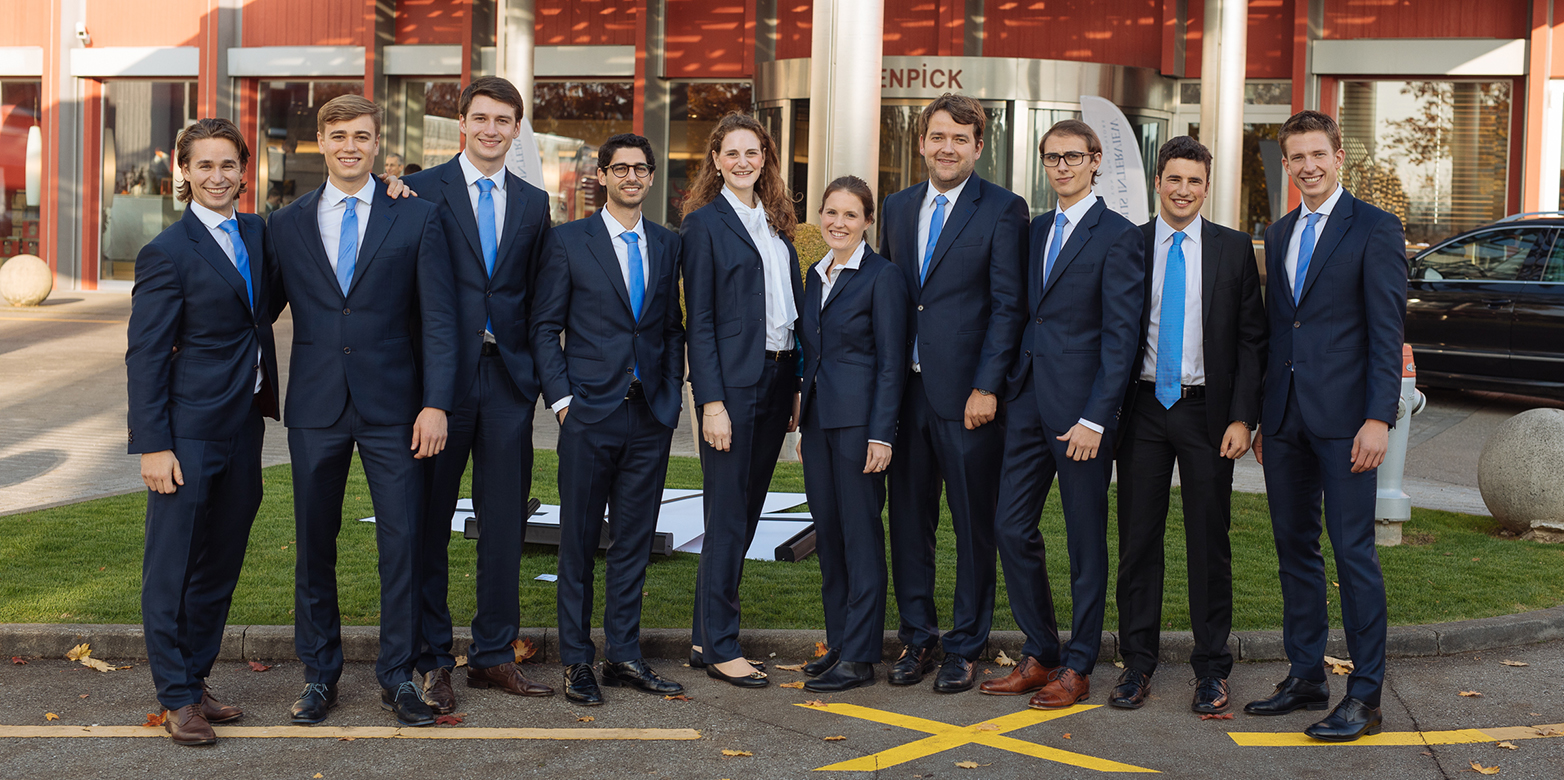A win-win for students and companies
From app development to market analysis: talented students in the ETH juniors club have supplied expertise to companies for 20 years. A success for all involved.

Up the hill from the ETH Main Building stands the small home of ETH juniors, on the idyllic Zürichberg. They have worked their way up, so to speak. Twenty years ago they had to knock on every door at the university in search of a place to call their own. It was on Floor G of the Main Building back in 1997 that the five founding members of ETH juniors wrote the first chapter in the success story of this student club.
The driving force behind it was Frank Floessel. At the time, he was an electrical engineering student and president of the Mechanical and Electrical Engineering Club for Students. He knew that there were junior enterprise organisations at other universities, and decided that he should create a club like that for ETH students and Swiss companies. After all, Floessel emphasises, it’s a winwin situation: “Students gain insights into the working world while getting some experience, and companies benefit from the students’ sound expertise and reasonably priced services.”
Scoring points with creative ideas
ETH juniors have offered many different services over the years – ranging from IT solutions, such as developing apps, to business management workshops and market analyses. Most jobs involve engineering, however, and reflect business challenges that intertwine with degree programmes at ETH Zurich. “Companies especially value students’ expertise on cutting-edge technologies, such as machine learning or big data,” says Robin Bloch, current president of ETH juniors. He adds that students get extra credit for sharing creative ideas with customers.
The president and his nine fellow ETH juniors are all responsible for handling customer projects, in addition to their individual tasks. All ten members organise meetings with customers and seek out suitable students for collaboration. Bloch points out that they strive to make their group a “school for entrepreneurs” that exemplifies start-up culture. Small wonder then that many ETH juniors later work as consultants, or combine forces with fellow former members to found a company. The start-ups Tempobrain, Climeworks and GetYourGuide were all founded by alumni of ETH juniors.
For these reasons, Floessel regards the club that he founded not only as a corporate consultancy, but also a hotbed of talented students. He is thrilled with the work of ETH juniors who followed in his footsteps. “Every member takes on a lot of responsibility, which makes it difficult to keep finding such dedicated students time and again. I’m very proud of them.” But talent and motivation alone are not enough. The club benefitted early on from financial assistance provided by ETH, and continues to enjoy the advantages that come with being allowed to use the prestigious ETH brand name.
Floessel and his fellow club members were so successful that they became financially independent during the first financial year. While the profits were then solely used for the compensation of its members, ETH juniors now invests a share of profits into a fund of their own, the recently created jFund. “The aim of the fund is to provide financial support to start-ups and other projects that former members oversee,” Bloch says. jFund has already written its first success story: Careship, a new online platform that arranges senior citizen care on an hourly basis. After receiving start-up capital from ETH juniors, Careship has since benefitted from an investor who provided four million dollars.
Considerable potential in the IT industry
It might not surprise, that the first startup succes was in IT industry. Most young people have grown up using modern technology and are at home in the digital world. Established companies, however, often lack experience with the latest technologies. It was such a situation that led to the recent Flyer- Bits project. A start-up had the idea to use an app to disseminate flyers from a varied range of local brick-and-mortar businesses. Smartphone users earn a few cents every time they read a company’s flyer. Users can choose to cash out their earnings, or donate them to charitable organisations.
Although the idea was sound, the start-up lacked the IT expertise to make it a reality. ETH students then stepped in to develop, design and implement the app – seeing the project through from start to finish. “We think it’s important that students have a chance to do a job from A to Z,” says Bloch. It took four months of development work to complete the app.
Bloch hopes that ETH juniors continue taking on front-line projects, crafting new technology solutions for businesses while honing their own capability to innovate. ETH juniors exhibit the same strengths today as they did 20 years ago. Founding member Floessel therefore remains confident that the club will continue to write one success story after another
This article appears in the current issue of Globe.